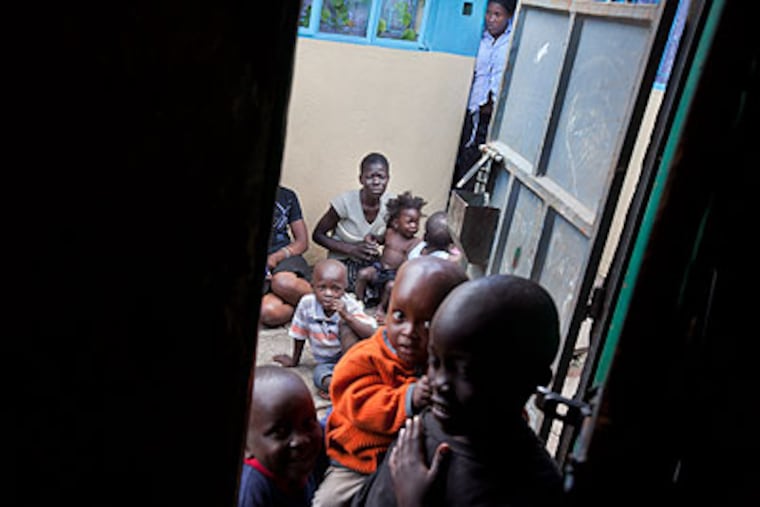Johnson & Johnson takes heat over passing on aid
Patients and profits are often on opposite sides of the cost equation for pharmaceutical companies. That was evident this week, when Johnson & Johnson decided not to help an international nonprofit organization that tries to help provide AIDS drugs in poor nations at cheaper prices by making patent-protected drug formulas available to lower-cost manufacturers.

Patients and profits are often on opposite sides of the cost equation for pharmaceutical companies. That was evident this week, when Johnson & Johnson decided not to help an international nonprofit organization that tries to help provide AIDS drugs in poor nations at cheaper prices by making patent-protected drug formulas available to lower-cost manufacturers.
J&J said three drugs, including one whose research was partially funded by U.S. taxpayers, would not be released to the Medicines Patent Pool.
"Anyone familiar with our company knows that our responsibility and commitment are always focused on the needs of patients," Will Stephens, vice president of global access and partnerships program for Janssen, the J&J division involved in the negotiations, said in a statement posted on a company website.
Bunk, said Doctors Without Borders, which has worked with the Medicines Patent Pool and serves patients in difficult spots worldwide.
"In saying no to the Medicines Patent Pool, Johnson & Johnson has made a conscious, willful decision to turn its back on people living with HIV in the developing world," Doctors Without Borders said.
The Medicines Patent Pool, founded in 2010, spun out of ideas raised at the 2002 International AIDS Conference and is modeled on a patent pool created by U.S. aircraft manufacturers during World War I. The drug need resulted, in part, from a 1994 World Trade Organization requirement that more countries establish and recognize pharmaceutical patents.
A patent holder makes more money on a drug because other manufacturers sometimes have to wait 20 years to start selling cheaper copies. But that also makes the drug less affordable to more people.
In 2006, England, France, Brazil, Chile, and Norway decided to create UNITAID, an international drug-purchasing organization whose mission was to increase access to treatments for HIV/AIDS, malaria, and tuberculosis. The Medicines Patent Pool is funded through UNITAID. Besides offering cheaper prices, the hope was that generic-drug companies could also produce combination treatments.
The Medicines Patent Pool has a licensing deal with Gilead Sciences and has talked with Boehringer-Ingelheim, Bristol-Myers Squibb, Roche, Merck, and Viiv Healthcare, a joint venture of GlaxoSmithKline and Pfizer.
A Merck spokeswoman said the company remained willing to continue discussions with the Medicines Patent Pool.
Glaxo has the majority stake in the venture with Pfizer. A Glaxo spokeswoman said Viiv Healthcare has several of its own programs and partnerships to get HIV drugs to patients at lesser cost. It first met with the pool in January, she said, and since then has "held several constructive meetings and are making progress."
The Medicines Patent Pool also has a licensing agreement with the National Institutes of Health. But, as Doctors Without Borders noted, the NIH license for the drug darunavir is useless because J&J won't give up its part of the patent on the same drug.
Drug companies often defend high prices by saying they pay for research and development.
"The profits in high-income markets are very substantial," said Doctors Without Borders Access Campaign director Tido von Schoen-Angerer. "They are more than enough to sustain R&D."